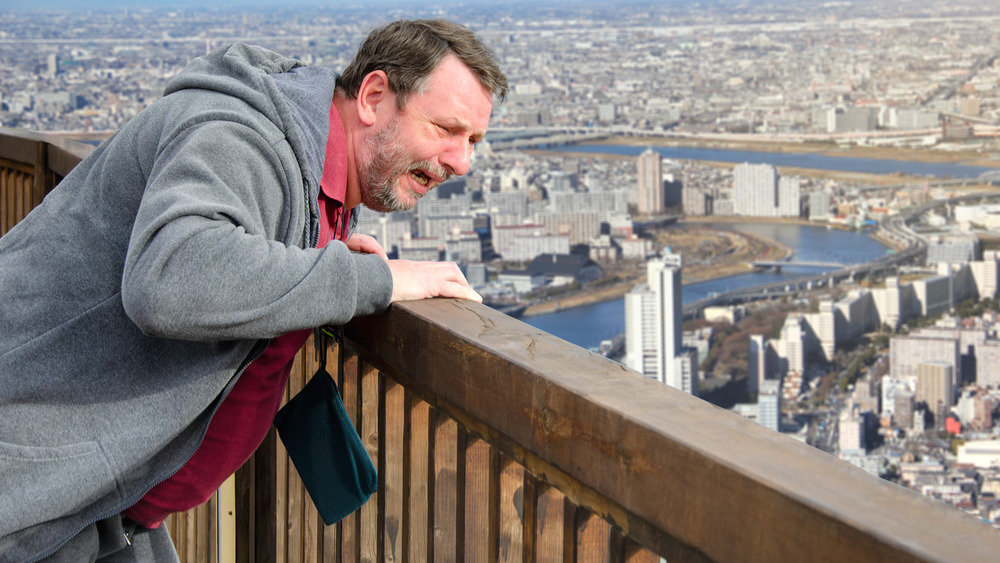The Real Reason Why People Are Afraid Of Heights
Fear is a normal, often beneficial phenomenon that can serve to keep a person safe, but phobias are different from standard, often explicable momentary fears, and differ as well from anxiety disorder. Per Talkspace, phobias "provoke excessive and persistent fear" and affect around 10 percent of people in the United States. Fear of heights, or acrophobia, is one of the more common phobias. The article points out that we all need to be a little afraid of heights, as falling can actually be dangerous, but why do some people have a "hyper-reaction" to being up high, even when there's no possibility of falling?
According to Psychology Today, many of the physical symptoms present in people experiencing acrophobia are similar to those in people having a panic attack — shaking, sweaty palms, nausea, and dizziness. Some people develop a fear of heights because of an actual experience with falling, or because they have a parent with a fear of heights and therefore "learn" the phobia. Both people who are afraid of heights and people who have panic attacks have "cognitive dispositions," however, that include tendencies to be particularly aware of one's body and its sensations, and to interpret certain bodily sensations as threatening. This can cause a "vicious cycle," in which someone is not only especially aware of their body being up high but also perceive the height as dangerous, leading to upsetting thoughts like "I'm going to fall," or "I might lose control and jump off the edge."
Is there hope for acrophobics?
Is it possible to overcome a fear of heights? Per Psycom, acrophobia can negatively affect a person's quality of life. Heights are hard to avoid entirely, and many people don't relish a life of constant hyperawareness and fear concerning being up high, be it on a ladder performing home repairs, on a hike that overlooks a valley, or in a hotel room on an upper level.
Is it possible to overcome a fear of heights? There are various therapy options that can help those who suffer from a fear of heights, including CBT, or cognitive behavioral therapy, which is a method of treatment in which "behavioral techniques that expose the individual to the feared situation ... are employed." It's even possible to use virtual reality equipment to simulate exposure to heights without actually going to high places.
Another option is medication. As Psycom explains, Beta blockers and sedatives have been effective for short-term relief, as they help control panicky or anxious mental and physical reactions. Since 2008, several studies have examined the efficacy of the drug D-cycloserine on anxiety disorders. Some findings indicate "using D-cycloserine with CBT may yield better results than the drug or CBT on its own." More research is necessary, but it sounds like a promising option for those living with severe acrophobia,

